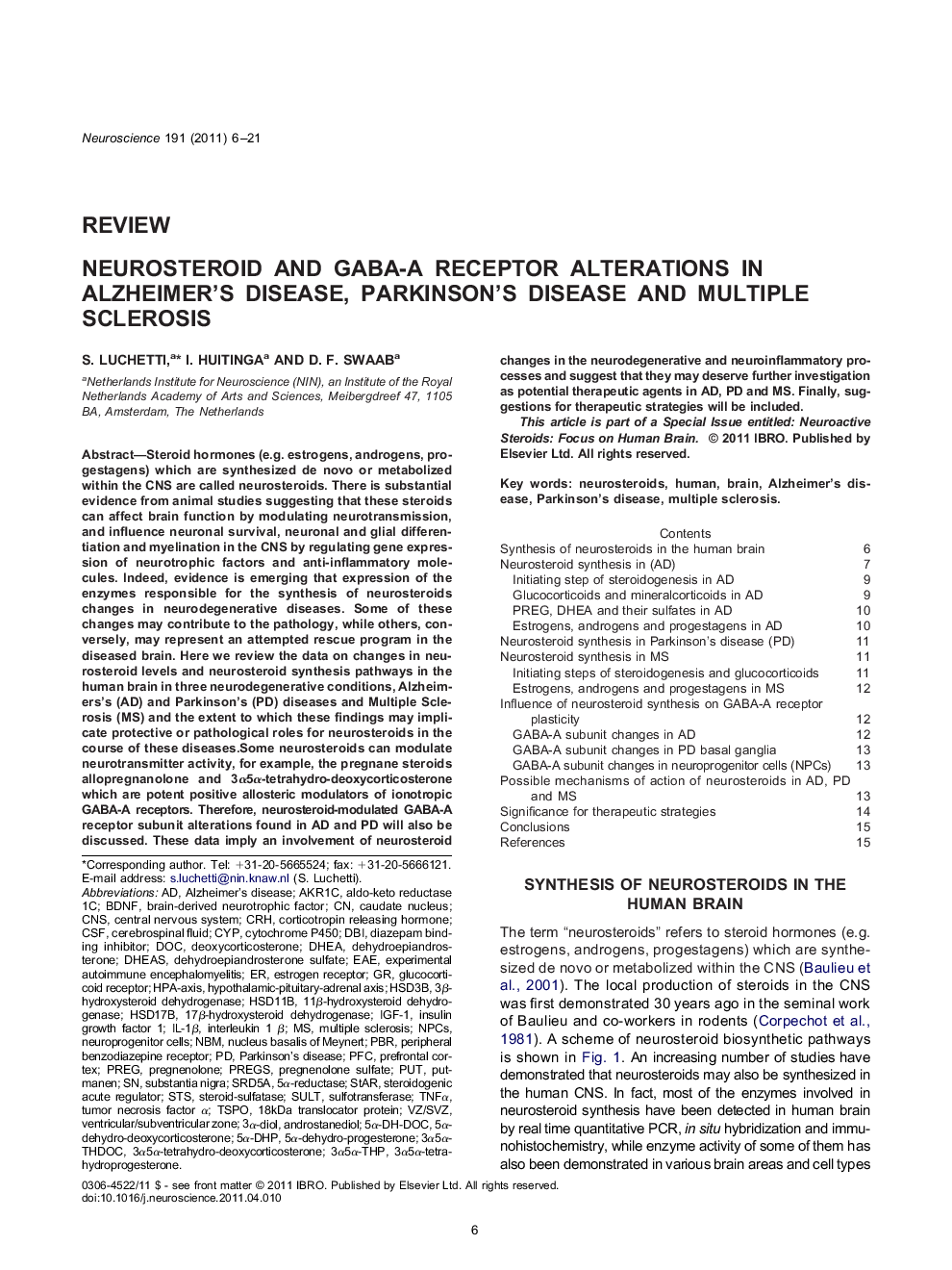| Article ID | Journal | Published Year | Pages | File Type |
|---|---|---|---|---|
| 4338776 | Neuroscience | 2011 | 16 Pages |
Steroid hormones (e.g. estrogens, androgens, progestagens) which are synthesized de novo or metabolized within the CNS are called neurosteroids. There is substantial evidence from animal studies suggesting that these steroids can affect brain function by modulating neurotransmission, and influence neuronal survival, neuronal and glial differentiation and myelination in the CNS by regulating gene expression of neurotrophic factors and anti-inflammatory molecules. Indeed, evidence is emerging that expression of the enzymes responsible for the synthesis of neurosteroids changes in neurodegenerative diseases. Some of these changes may contribute to the pathology, while others, conversely, may represent an attempted rescue program in the diseased brain. Here we review the data on changes in neurosteroid levels and neurosteroid synthesis pathways in the human brain in three neurodegenerative conditions, Alzheimers's (AD) and Parkinson's (PD) diseases and Multiple Sclerosis (MS) and the extent to which these findings may implicate protective or pathological roles for neurosteroids in the course of these diseases.Some neurosteroids can modulate neurotransmitter activity, for example, the pregnane steroids allopregnanolone and 3α5α-tetrahydro-deoxycorticosterone which are potent positive allosteric modulators of ionotropic GABA-A receptors. Therefore, neurosteroid-modulated GABA-A receptor subunit alterations found in AD and PD will also be discussed. These data imply an involvement of neurosteroid changes in the neurodegenerative and neuroinflammatory processes and suggest that they may deserve further investigation as potential therapeutic agents in AD, PD and MS. Finally, suggestions for therapeutic strategies will be included.This article is part of a Special Issue entitled: Neuroactive Steroids: Focus on Human Brain.
▶We review changes in neurosteroid synthesis seen in three neurodegenerative diseases. ▶Current data implicate protective or pathological roles for neurosteroids. ▶Alterations of GABA-A receptor subunits modulated by neurosteroids are discussed. ▶Finally, neurosteroids are considered as potential therapeutic agents.
